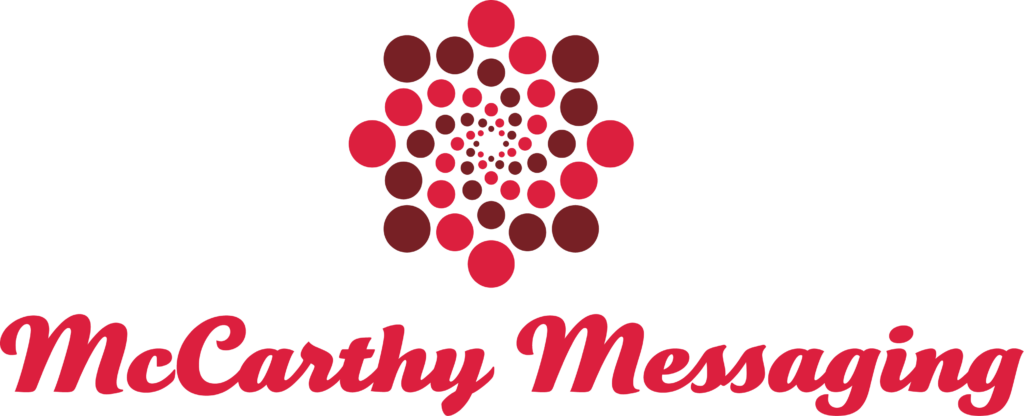We know you.
You’re obsessed with finding ever more powerful ways to engage employees, customers, and investors. You lay awake at night, considering how your company can speak with a stronger, clearer voice. Stand out. Draw people in.
You want to stop reinventing the message with every new communication. Maybe you feel the hot breath of competition on your neck. Or perhaps they’ve already taken the lead, and you’re playing catch-up.
If you struggle to keep employees pulling in the same direction in service to a business goal, project, or product offering – or worse yet, keep them from working at cross purposes – it’s probably time for a message platform.
So what is this thing we call a message platform?
A message platform is a concise, laser-focused articulation of the most important ideas you want your key audiences to consistently hear, believe, and internalize about your business, initiative, product, or perspective.
A message platform is the foundation or guide for communications to various audiences. It’s also a practical, powerful tool to keep leaders, sales teams, marketers, and others inside the organization moving and speaking in perfect harmony.
Here’s what a message platform is NOT:
- A list of key messages, slogan, or tagline: these often reduce your organization to a series of easily-digestible soundbites, whereas a message platform tells a more complete story.
- Talking points or a rigid script: a message platform transcends situations, audiences, and moments in time. It reflects your business’s touchstone truths that you can and should adapt for use in all communications.
At McCarthy Messaging, we’ve seen time and again how developing a smart, strategic message platform can help companies rise above their competitors.
How a message platform solves common problems
The best time to create a message platform is before you’ve got confused employees or lukewarm customers on your hands, but it’s never too late to build clarity and consensus. And while every organization will have different needs at different times, there are common messaging trouble spots that, when swiftly addressed, can make a huge difference in whether or not your people have your back or talk behind it.
If you’re having issues with:
- Your organization, business unit, or department: Distill the most critical and compelling ideas about who you are, what you do, and for whom. Illustrate how you’re distinctive and why it all matters. Provide compelling reasons to work with you and not one of your competitors.
- A product, program, or capability: Define your audience’s pain points. Describe your offering and how it solves problems, stands out from similar products, and benefits customers.
- A decision or position on an industry issue: Articulate why you’ve made a decision, industry pivot, or changed position on a particular topic. Provide rationale, be transparent, and give stakeholders a picture of likely outcomes.
What it takes to build a champion message platform
A five-star message platform makes the complicated simple and the simple compelling. Creating one takes fortitude. You have to uncover your organization’s central storyline and have the guts to let go of plot points and ideas that don’t matter, even when you’re attached to them.
A message platform isn’t a litany of truths about your company or product. It’s a deliberate prioritization of specific, relevant truths. To build a successful message platform:
- Skip the industry jargon: Talk plainly. Instead of “leverage,” try “use.” Say “dangerous” instead of “high rate of mortality.” Instead of using three adjectives, find the one hero adjective. Use humanizing language and make every word count.
- Embrace authenticity: A top-notch message platform is honest and aware. And it’s defensible—you must be willing and able to demonstrate and deliver on your claims.
- Know your audience: If you don’t know your audience, you can’t speak to them. Unearth and include ideas that are meaningful to your employees, customers, partners, and investors. Or frame them in a way that makes them meaningful.
- Consider long-term impact: Your message platform should tease out, prioritize, and defend the foundational ideas about your company or product. What stands the test of time? Get clarity on those, and you won’t constantly reimagine your messaging with each new communication.
- Stand out from the pack: What attributes can you claim that your competitors either can’t or don’t? Discovering what makes you unique requires deep introspection, complete objectivity, and a willingness to accept the unexpected.
With a message platform in hand, your obsession with being better, reaching further, and serving more is no longer the stuff of dreams. Voices, once fragmented, come together as one. Confusion gives way to clarity. Your story is amplified.
If you want to develop a stand-out message platform but aren’t sure how to get started, we can help. Schedule a FREE 30-minute consult here.
Margie McCarthy is founder of McCarthy Messaging, a strategic messaging firm based in Denver, Colorado. She’s fond of messy challenges, brave clients and vintage jewelry.
We promise: Your strategy session will NOT be a sales pitch. And because we know your time is valuable: If you don’t leave our conversation with one new idea (or if you feel like we’re selling you), we’ll donate $100 to the charity of your choice.
